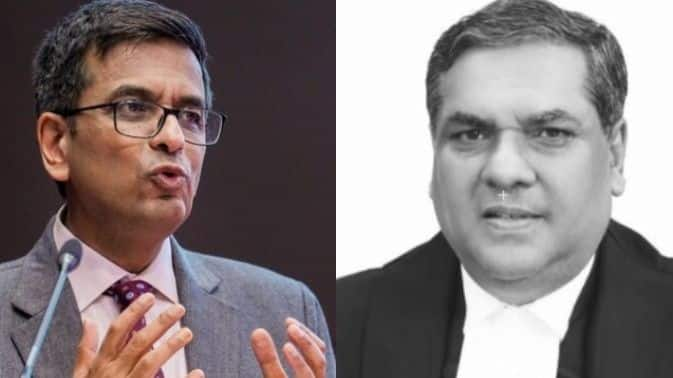
CJI Chandrachud proposes Justice Sanjiv Khanna as his successor
What's the story
Chief Justice of India (CJI) DY Chandrachud has recommended Justice Sanjiv Khanna as his successor.
The recommendation comes after the Union government sought a name on October 12.
CJI Chandrachud will retire next month. His two-year term began on November 9, 2022.
If approved by the Centre, Justice Khanna will be the 51st Chief Justice of India, serving until May 13, 2025.
Career trajectory
Justice Khanna's legal career
Justice Khanna is the most senior-most judge in the Supreme Court.
He started his legal career in 1983 after enrolling with the Bar Council of Delhi.
He first practiced at Tis Hazari district courts before shifting to the Delhi High Court.
In 2005, he was appointed as an additional judge at the Delhi High Court and became a permanent judge in 2006.
Judicial impact
Justice Khanna's significant rulings and institutional roles
Justice Khanna has contributed immensely to India's judicial landscape. He was instrumental in institutions like the Delhi Judicial Academy and the Delhi International Arbitration Centre.
In January 2019, he was elevated to the Supreme Court without having served as a Chief Justice of any High Court.
His landmark rulings include granting interim bail to former Delhi Chief Minister Arvind Kejriwal which allowed him to campaign during Lok Sabha elections.
Legal perspectives
Justice Khanna's stance on bail under PMLA
Justice Khanna played a pivotal role in a ruling involving former Deputy Chief Minister Manish Sisodia, highlighting that delays in legal proceedings could justify bail under the Prevention of Money Laundering Act (PMLA).
In another key case, he headed a bench that rejected the demand for 100% verification of EVM votes using Voter Verifiable Paper Audit Trails (VVPATs).
The April 2024 judgment endorsed the Election Commission of India's efforts to ensure accurate and secure voting through EVMs.
Judicial views
Justice Khanna's views on Article 370
Justice Khanna was also part of a five-judge bench that recently ruled the electoral bond scheme unconstitutional, determining that anonymous donations through these bonds violate the public's right to information, a key factor for informed voting.
Additionally, he upheld the abrogation of Article 370, arguing that although the provision reflected a unique aspect of India's federal structure, it did not grant Jammu and Kashmir sovereignty.